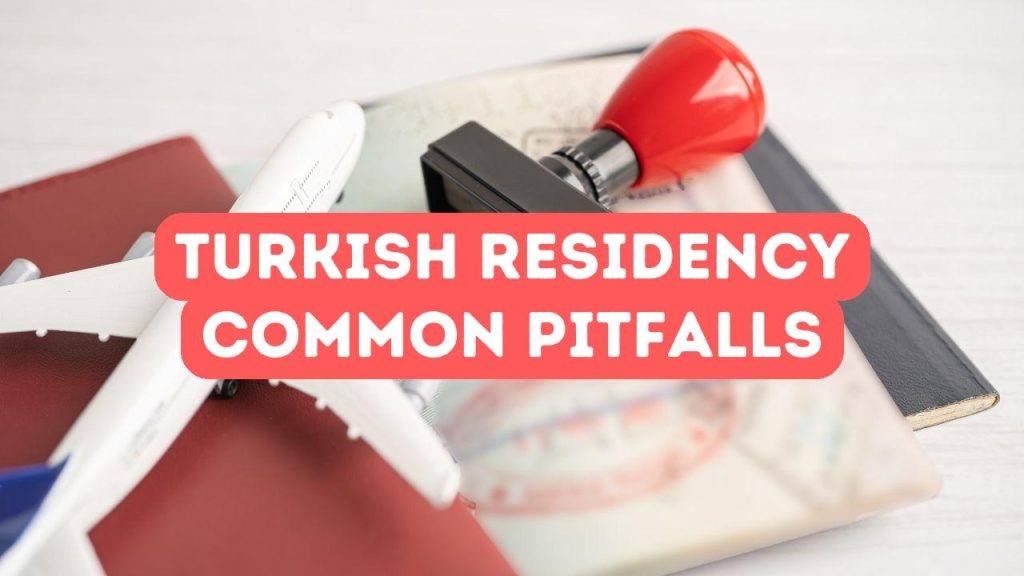Navigating Bureaucratic Challenges
One of the most significant regrets expressed by expatriates pertains to underestimating the complexity of Turkey’s bureaucratic procedures. While the allure of Turkey’s dynamic culture and economic opportunities is undeniable, many fail to anticipate the labyrinthine nature of its immigration processes. Seasoned by intricate paperwork, often subject to change without widespread notice, these processes can lead to delays and unanticipated requirements that catch many off-guard. The regret stems from not seeking ample guidance or assiduous preparation when dealing with residency applications, property purchases, or business registrations. Consequently, this oversight may see hopeful residents stalling at the first hurdle, facing prolonged waiting periods, or, in worst-case scenarios, facing rejection. It serves as a stark reminder that behind the vibrancy of Turkish society lies a rigid administrative structure that demands respect, patience, and a thorough understanding of its workings.
Compounding the problem is the challenge of navigating Turkish residency matters without a robust grasp of the local language. Despite the growing expatriate community, English is not universally spoken in government offices, and critical information is primarily communicated in Turkish. This language barrier can exacerbate misunderstandings and complicate seemingly straightforward transactions. Real estate transactions, a common route to residency, are particularly susceptible to these pitfalls. Expats often regret not investing in competent legal representation or a reliable translator to facilitate clear communication. The oversight can result in misfiled documents, overlooked details in contracts, or failure to meet key legal requirements, which are essential to securing a foothold in Turkey. This speaks to a critical underpinning of successful immigration – the indispensability of clear communication and proficient navigation of local customs and legal frameworks.
Lastly, the sheer tenacity of Turkish bureaucratic red tape often leads to an unexpected strain on personal finances, causing deep regret for many who do not factor in the potential for additional costs. From notarial fees to health insurance premiums and residence permit renewals, expenses can mount rapidly, and regulations concerning financial self-sufficiency may shift, placing unprepared expatriates in precarious positions. Caught in this fiscal undertow, expatriates frequently lament not having a more robust financial buffer and a nuanced understanding of the cost of living adjustments. Failing to account for the financial demands of Turkish bureaucracy can lead to detrimental impacts on the residency process, reinforcing the significance of comprehensive pre-move budget planning and an ongoing, informed financial strategy once settled in. This financial reality check serves as a formidable reminder that a smooth transition to Turkish residency not only requires bureaucratic navigation but also astute financial foresight and resilience.
Cultural Adaptation and Missteps
One of the most poignant regrets often expressed by expatriates relates to underestimating the cultural adjustment required when settling in Turkey. The rich tapestry of Turkish customs, language, and societal expectations can present an alluring yet challenging landscape for foreigners. Many newcomers envision a smooth transition, lulled by the warm hospitality of the Turkish people, only to find themselves struggling with the nuances of daily interactions and local practices. Failure to grasp the importance of language proficiency, for instance, can lead to isolation and significant barriers in engaging with government services, community integration, and even in emergency situations. Expats who neglect to research and respect the subtle yet significant aspects of Turkish culture—such as religious sensitivities and conservative social norms—often face a rude awakening that can tarnish the luster of their dream of Mediterranean living.
Another regret touches upon the labyrinthine nature of Turkey’s bureaucracy, which can be a stark contrast to the systems many expatriates are accustomed to. The romantic vision of sipping Turkish tea by the Bosphorus can quickly sour when faced with the reality of complex visa applications, residence permit renewals, and property registration processes. Without meticulous attention to detail and deadlines, expats can find themselves ensnared in red tape, facing penalties, or even staring down the possibility of deportation. Moreover, the reliance on unofficial advice from well-meaning but ill-informed fellow expatriates can exacerbate these challenges, leading to costly and time-consuming missteps. Therein lies a lesson in the virtue of patience and the importance of seeking guidance from reputable professionals well-versed in the intricacies of Turkish administrative frameworks.
Lastly, the dream of a seamless cultural integration often clashes with the pragmatic reality of creating a sustainable life in Turkey. Expats narrate tales of regret stemming from misjudged business ventures, property disputes, or financial misunderstandings, amplified by a lack of local legal knowledge. Investments that seemed straightforward become mired in complications, as differences in business etiquette, contract interpretation, and dispute resolution can be profound. This, coupled with an occasionally volatile economy, can strain the resources and resilience of the unprepared. To mitigate these risks, it is imperative for potential residents to conduct comprehensive due diligence, engage with credible local advisors, and cultivate a strong support network within the expatriate and Turkish communities alike. By embracing both the enchanting and the exacting aspects of Turkish residency, expatriates can better navigate the cultural currents and secure a fulfilling and stable life in this dynamic land.
Financial Implications and Oversights
One of the most pronounced regrets expressed by those who have sought Turkish residency lies in underestimating the financial implications and overlooking the full spectrum of associated costs. Beyond the initial real estate investment or rental agreements, expatriates are often blindsided by the nuanced complexities of Turkish tax laws, health insurance mandates, and unforeseen expenses related to residency permit renewals. These financial burdens can assume a discouraging weight, particularly for those who have not conducted extensive pre-move fiscal planning or who might not be as well-versed in the intricacies of Turkish financial obligations. The allure of a low cost of living can swiftly be overshadowed by these unanticipated financial commitments, placing stress on both personal finances and the overall residency experience.
Additionally, newcomers may find themselves regretting not having established a robust financial safety net before relocation. The fluctuating Turkish economy, with its occasional rapid inflation and currency volatility, can dramatically affect purchasing power and the cost of living. Foreigners used to stable economic environments might not anticipate how changes in the exchange rate between their home currency and the Turkish lira could distort their budget projections, lead to increased living costs, or diminish the value of their savings. Furthermore, ignorance of local financial customs and practices, such as the commonality of cash transactions and the reliance on negotiation in property deals, can lead to missed savings opportunities or overpayment. These financial nuances underscore the importance of thorough financial literacy and planning – those without it may find that their dream of an affordable Turkish lifestyle is more costly than imagined.
Failing to account for the complete range of ancillary costs associated with establishing residency—such as legal fees, translation services, and health checks—further compounds financial regrets for many. Residents frequently underestimate the cost of integrating into Turkish society, which can include language lessons, cultural acclimatization courses, and navigating local markets for goods and services. Moreover, those who do not conduct due diligence regarding local tax implications for foreign residents may find themselves facing substantial liabilities. This cocktail of hidden expenses and regulatory demands often precipitates a sharp reality check for those who envisioned a seamless financial transition. Consequently, it is imperative for prospective residents to engage with financial advisors knowledgeable in Turkish law and expatriate financial issues, to avoid the sting of unexpected fiscal challenges that could sully the experience of their new life in Turkey.






